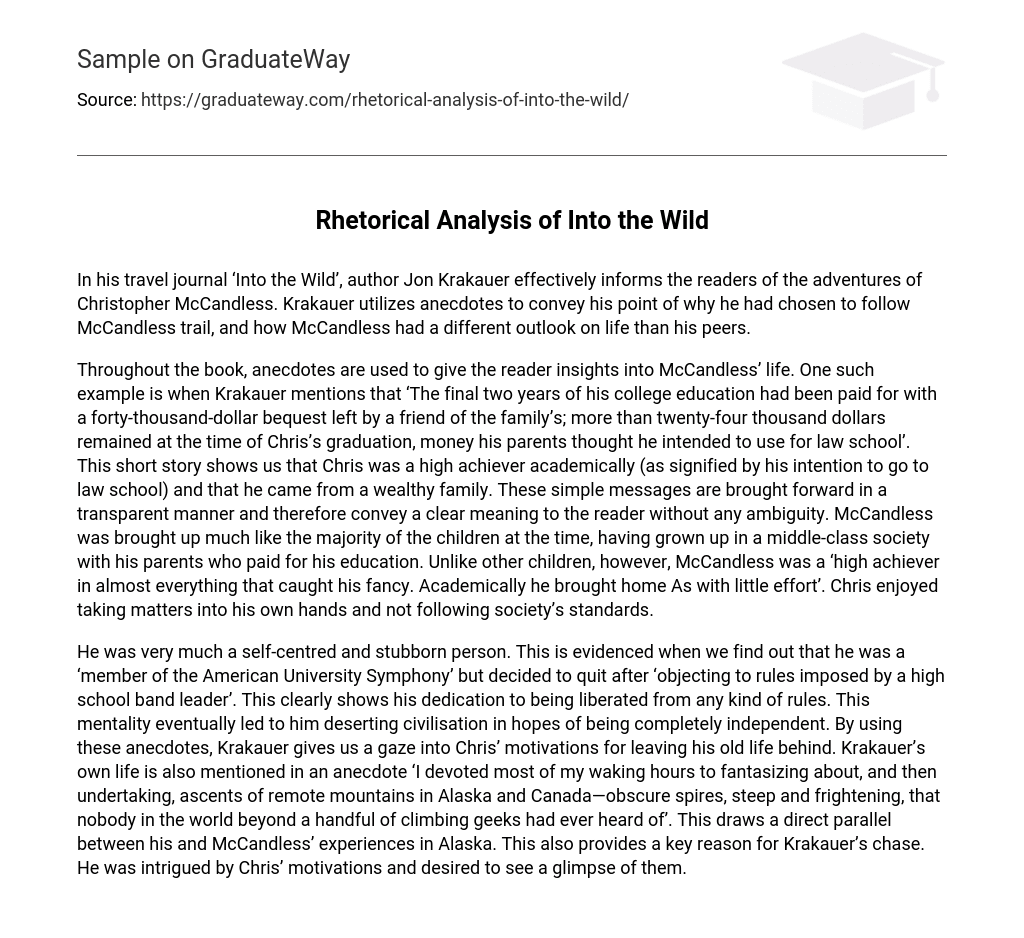In his travel journal ‘Into the Wild’, author Jon Krakauer effectively informs the readers of the adventures of Christopher McCandless. Krakauer utilizes anecdotes to convey his point of why he had chosen to follow McCandless trail, and how McCandless had a different outlook on life than his peers.
Throughout the book, anecdotes are used to give the reader insights into McCandless’ life. One such example is when Krakauer mentions that ‘The final two years of his college education had been paid for with a forty-thousand-dollar bequest left by a friend of the family’s; more than twenty-four thousand dollars remained at the time of Chris’s graduation, money his parents thought he intended to use for law school’. This short story shows us that Chris was a high achiever academically (as signified by his intention to go to law school) and that he came from a wealthy family. These simple messages are brought forward in a transparent manner and therefore convey a clear meaning to the reader without any ambiguity. McCandless was brought up much like the majority of the children at the time, having grown up in a middle-class society with his parents who paid for his education. Unlike other children, however, McCandless was a ‘high achiever in almost everything that caught his fancy. Academically he brought home As with little effort’. Chris enjoyed taking matters into his own hands and not following society’s standards.
He was very much a self-centred and stubborn person. This is evidenced when we find out that he was a ‘member of the American University Symphony’ but decided to quit after ‘objecting to rules imposed by a high school band leader’. This clearly shows his dedication to being liberated from any kind of rules. This mentality eventually led to him deserting civilisation in hopes of being completely independent. By using these anecdotes, Krakauer gives us a gaze into Chris’ motivations for leaving his old life behind. Krakauer’s own life is also mentioned in an anecdote ‘I devoted most of my waking hours to fantasizing about, and then undertaking, ascents of remote mountains in Alaska and Canada—obscure spires, steep and frightening, that nobody in the world beyond a handful of climbing geeks had ever heard of’. This draws a direct parallel between his and McCandless’ experiences in Alaska. This also provides a key reason for Krakauer’s chase. He was intrigued by Chris’ motivations and desired to see a glimpse of them.





